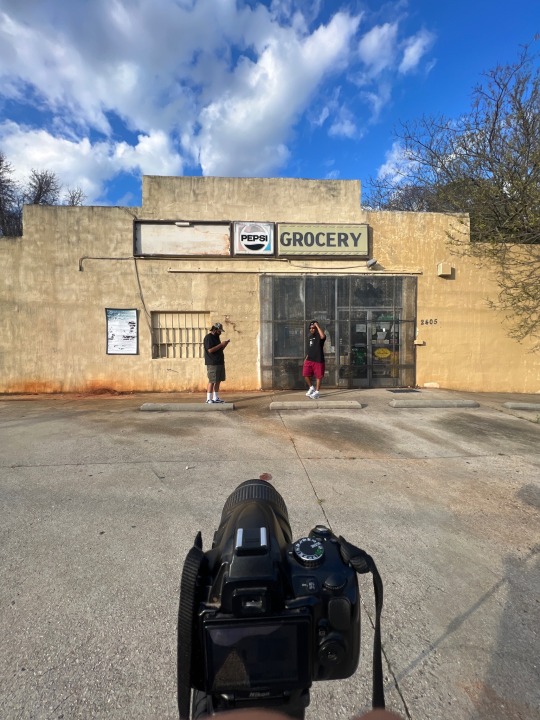#kemp
Explore tagged Tumblr posts
Text

It´s that time of the year again! Original:

#the invisible man#jack griffin#fanart#h.g. wells#griffin#gothic literature#gothic lit art#pride month#Kemp#Arthur Kemp#h g wells#happy gay month :D
43 notes
·
View notes
Text

Kemp, Godzilla, Coffee, 2024
26 notes
·
View notes
Text
Today's chapter is in so many ways the culmination of the book. There is only a single brief hint of Griffin as a person:
They stood on the landing, Kemp speaking swiftly, the grotesque swathings of Griffin still on his arm.
But the reminder isn't so much that he's a person, naked and scared as much as he is angry. The mention of his bandages here isn't focused on him being injured, and now no longer receiving any treatment. Instead, they're called 'grotesque', the focus is on them being disgusting. The fact that Kemp has them means that the Invisible Man can no longer be seen, that is all. And while the narration doesn't mention Kemp casting off these wrappings from his own arm, I certainly get the impression that he does. Certainly he metaphorically does, when he immediately begins to assert:
“He is mad,” said Kemp; “inhuman. He is pure selfishness. He thinks of nothing but his own advantage, his own safety. I have listened to such a story this morning of brutal self-seeking…. He has wounded men. He will kill them unless we can prevent him. He will create a panic. Nothing can stop him. He is going out now—furious!”
Mad. Selfish. Furious. Will kill, will cause panic. Inhuman.
All those descriptors could be used for a person, except the last. Still a dangerous person of course, but a fellow human being. But Kemp denies Griffin that. As he continues to talk with the police, it becomes clear that in all his listening to Griffin's tale, the only things that have stuck are the bad parts. We knew that often when Griffin was at his most open/vulnerable, Kemp was distracted. The narration outright told us so. But he demonstrates that he was alert to all the things that confirmed his own fears... and even when he did hear the other stuff, it wasn't pity or understanding that he took from it.
He knows that Griffin wanted to get away. He knows Griffin wants his books back. He doesn't think about how that was originally in a desire to become visible again.
He knows Griffin has hurt people before. He knows Griffin said he wants to kill, to start a Reign of Terror. He doesn't consider how Griffin said it was a necessity rather than a desire, doesn't consider the many times he tried to avoid harming others until forced into a confrontation or overcome by anger.
He knows all of Griffin's weaknesses. He knows that in the past Griffin has been exhausted, starving, cold, sick, unsheltered, hunted by dogs. He tries to recreate all these worst moments.
He knows Griffin is more visible in certain situations. Rather than suggesting people start carrying mud or paint around to try and mark him, or that they use smoke or colored powder in the air, he goes straight to the most vicious option: powdered glass. The one that Griffin himself mentioned.
In every way, he is turning all that Griffin told him into a weapon he can wield against him. And to a certain extent, it could simply be precaution. It is hard to fight against an invisible foe - more specifically to find one or to defend against one that you don't know is there. That does indeed require strategic thinking if you want to ensure success.
But Kemp dives right past strategy into cruelty. He goes to the greatest extremes immediately, proposes ideas that would never be put into use against another person. The powdered glass is case in point. Not only could other less violent options come to mind if he'd spent some time thinking about it, but there's a reason he hesitates before suggesting it.
“It’s cruel, I know. But think of what he may do!”
That sums it up, doesn't it? Yes, the method is cruel. But the ends are worth the means, because the consequences would be... Well, the idea of the consequences is too frightening. There's nothing he'll put past Griffin now. Because, as he says next:
“The man’s become inhuman, I tell you,” said Kemp. “I am as sure he will establish a reign of terror—so soon as he has got over the emotions of this escape—as I am sure I am talking to you. Our only chance is to be ahead. He has cut himself off from his kind. His blood be upon his own head.”
Kemp is utterly convinced that Griffin is a monster now. What's more, he considers it something that Griffin has done to himself. And while in many ways, both literal and symbolically, there is some truth to that... it doesn't have to be so final. Even if he has cut himself off from his own kind, that doesn't have to be a permanent state of being. He is still a man, he's never stopped being human this whole time.
But Kemp doesn't think that's true. And so in the end of the chapter he blames Griffin. For all that has happened: what he's done and what others have done to him in result. For all that will happen: for what he might do and what others will do to him first to try and stop that. It's Griffin's fault, all of it, and because Griffin did something inhuman first, that justifies all lack of humanity in hunting him down.
Hunting him. Like a dangerous animal.
#the invisible mail#kemp#griffin#my meta#tempted to say that last line is an echo/answer to kemp's urging griffin to trust other people/share his information with the country#except that wasn't really a genuine offer in the first place#maybe. MAYBE if griffin had taken it then he'd try to argue for more understanding once he's arrested#but he was very much fully committed to having him arrested regardless#and there's sadly no way griffin would ever have felt safe enough to take the offer like that#he and kemp are just similar enough to be bouncing off one another in the absolute worst way
28 notes
·
View notes
Text


enraptured by the weed otter. played with giving him more species appropriate patterns
14 notes
·
View notes
Text

I made this while I was bored lmao
9 notes
·
View notes
Text
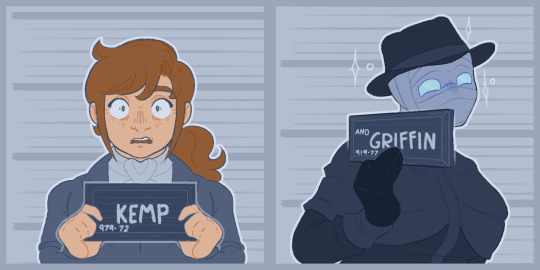
got their asses
#the invisible man#griffin#kemp#gothic lit#ladies book club#The only reason why griffin is so cheery is because she got Kemp in trouble#If it was just her she'd be trying to beat the shit out of everyone in range#barbie#barbie redraw
122 notes
·
View notes
Text
Kemp is the “I can’t stand you”
To griffin’s “then sit”
12 notes
·
View notes
Text
Whether ignorant or lying, 45 does not have the grasp of reality needed to be an effective president.
Trump falsely claims Georgia Governor Kemp had difficulty reaching President Biden while Kemp discusses the conversation he had directly with Biden.
Being this out of touch with the world, especially in a crisis, is one of the ways trump is not ready to be president.
#election#elections#election 2024#donald trump#trump#reality#dementia#senility#president#kemp#biden#helene#hurricane helene#politics#political#us politics#USpol
2 notes
·
View notes
Text
this is sort of a minor thing in being human but something I noticed on a rewatch was the unique way certain human characters perceive ghosts.
there’s a moment in season 2 when kemp and hennessey come to the house to talk to annie. hennessy is a human psychic so he can’t see annie but he can hear her. kemp is human and can’t see or hear annie. but what i really love about this scene is that while hennessy looks vaguely in annie’s direction, it is kemp who looks her directly in the eyes, as if he can actually see her when we know he can’t. it makes him so much more unsettling because this isn’t something he should be able to do. he sees annie and understands her and this makes her trust him but really we know that it actually just makes him all the more terrifying.
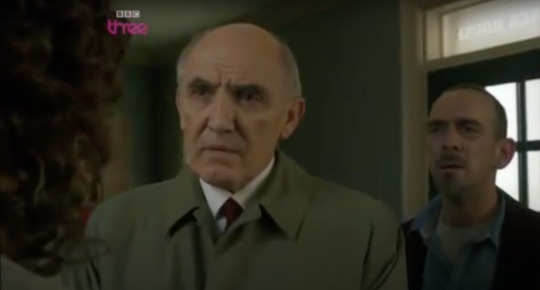
and then there’s the first scene with rook at the end of season 4 when we can tell he senses alex. we know he’s human because he doesn’t actually see her but we know he has a lot of supernatural experience because of this ability to sense her presence.
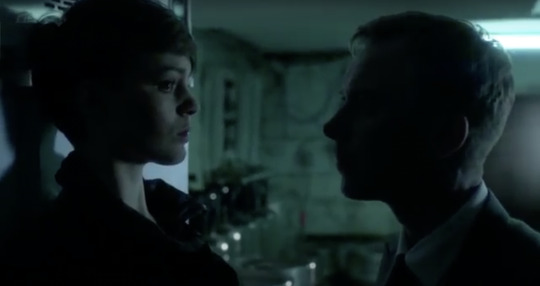
both kemp and rook are villainous characters whose extensive professional work with the supernatural allows them to transcend beyond their limitations as humans and be able to sense ghosts in a way no other human characters on the show can. you would think having humans as villains on a show with supernatural protagonists wouldn’t be that interesting but being human makes it work really well and it’s details like this which help make it work so well.
24 notes
·
View notes
Text
Forbidden Nights Act 2 Webnovel is out~!
Act 1 already ended and Act 2, featuring the Invisible Man cast, is out!
(Though it's been out for a while, I just forgot to advertise, my bad LOL)
Please check it out if you are interested, the writing has been made better by my beta (@/hima_warie_seed on Twitter/X)
Thank you! And I hope you enjoy it!
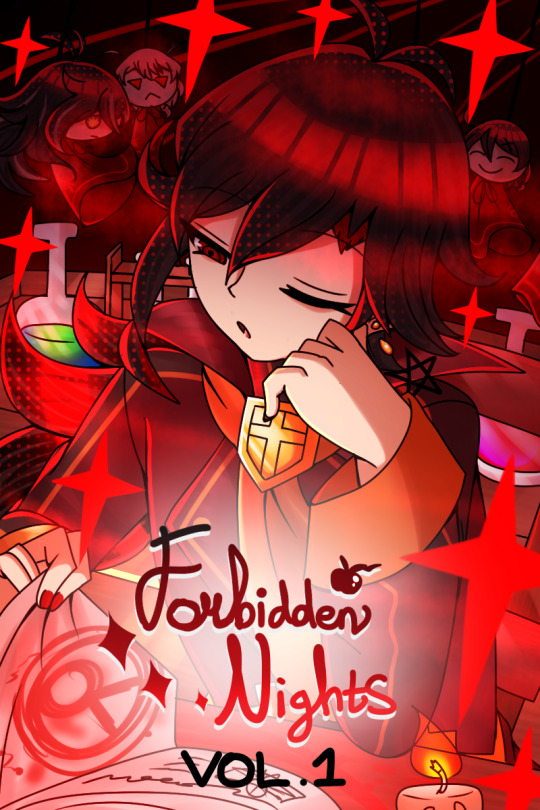
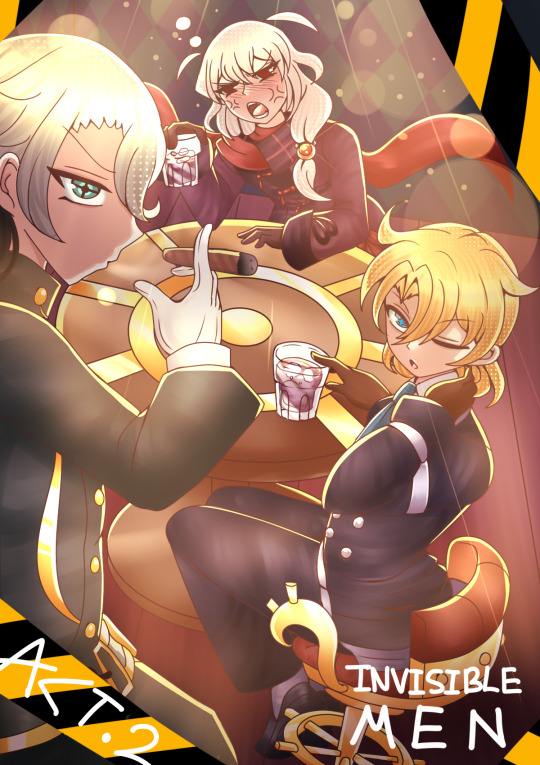
#webnovel#webtoon#webtoon canvas#griffinxkemp#invisible man grotesque romance#invisible man#kemp#kempxgriffin#colonel adye#fiction
3 notes
·
View notes
Text
One really cool thing about tweed is they use kemp as well as wool fibers.
Sheep produce three types of fibre - Wool (fibres that spin super well and lock together) Hair (like humans - it is slippy and doent spin as well) and Kemp (hollow fibres that are prickly and dont absorb dye well)
Normally kemp is avoided in textiles - in many cases it has been completely bred out of sheep. However it *is* used in tweeds, and because it doesnt take the dye, it gives tweed that lovely heathered tone! ❤️
The answer to "What the h*ck goes on on those islands to the North and West of mainland Scotland?" by Derek Guy @/dieworkwear on twitter [x]


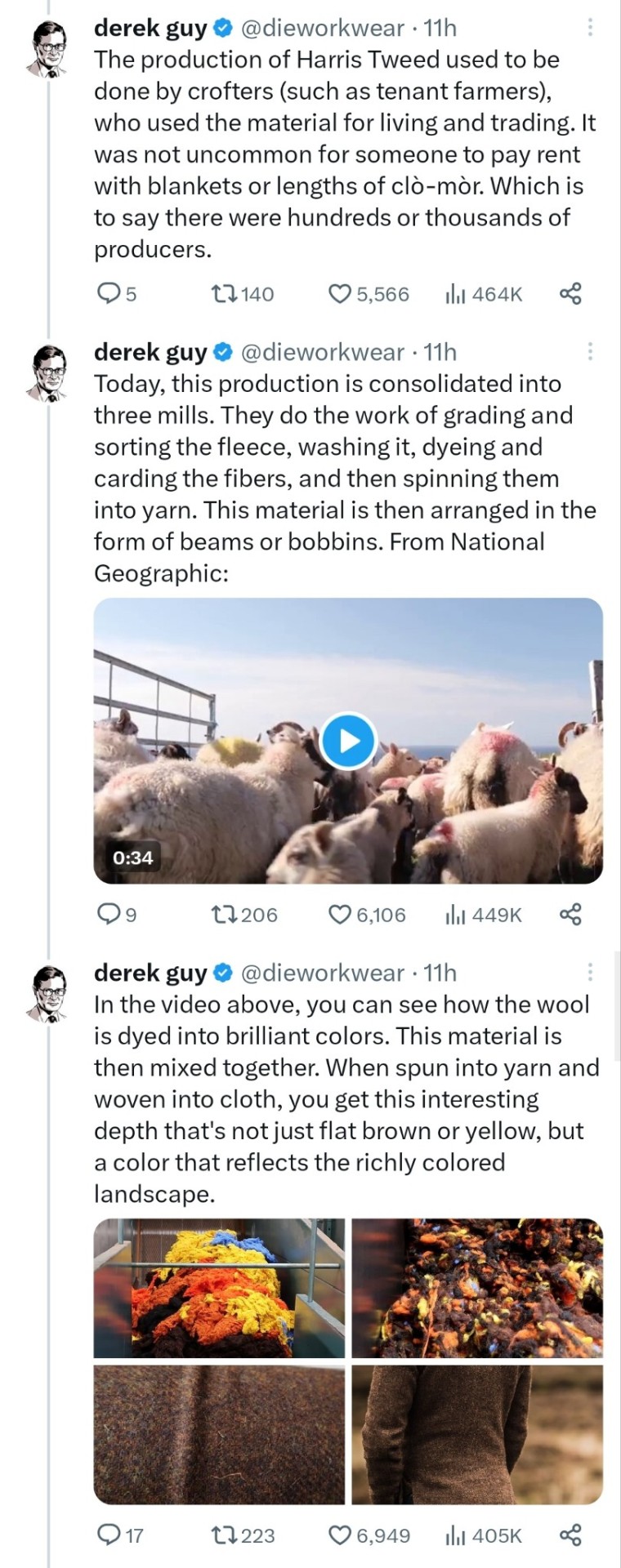
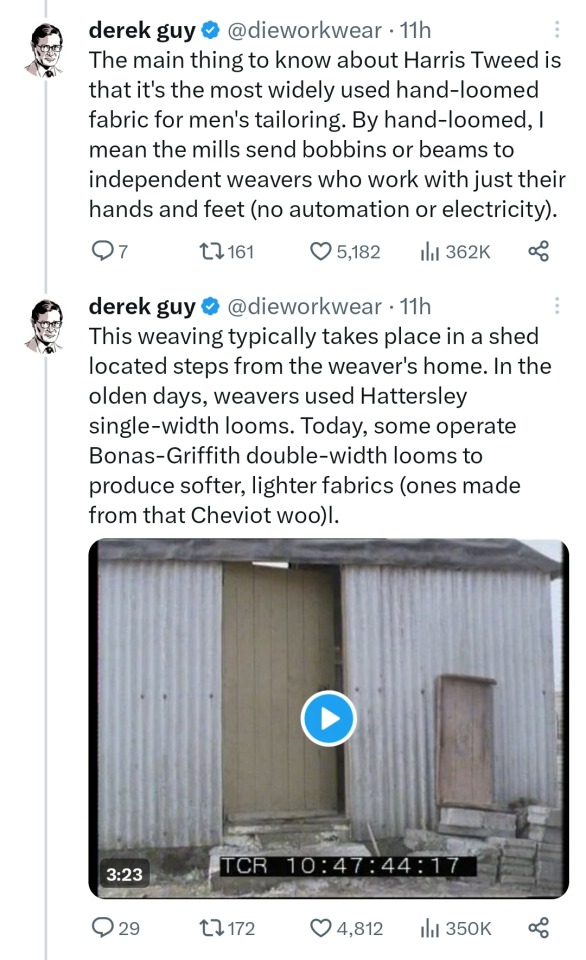
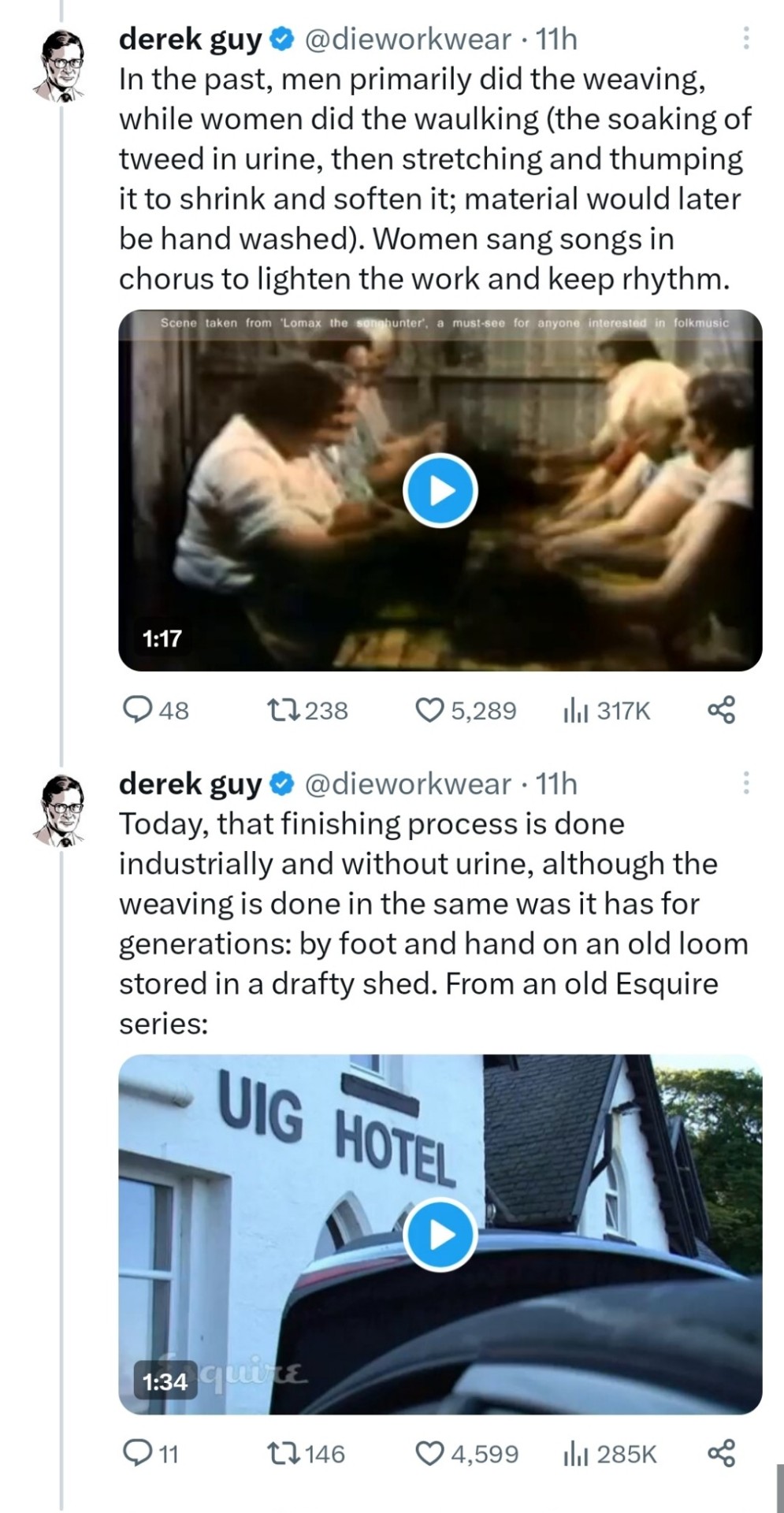
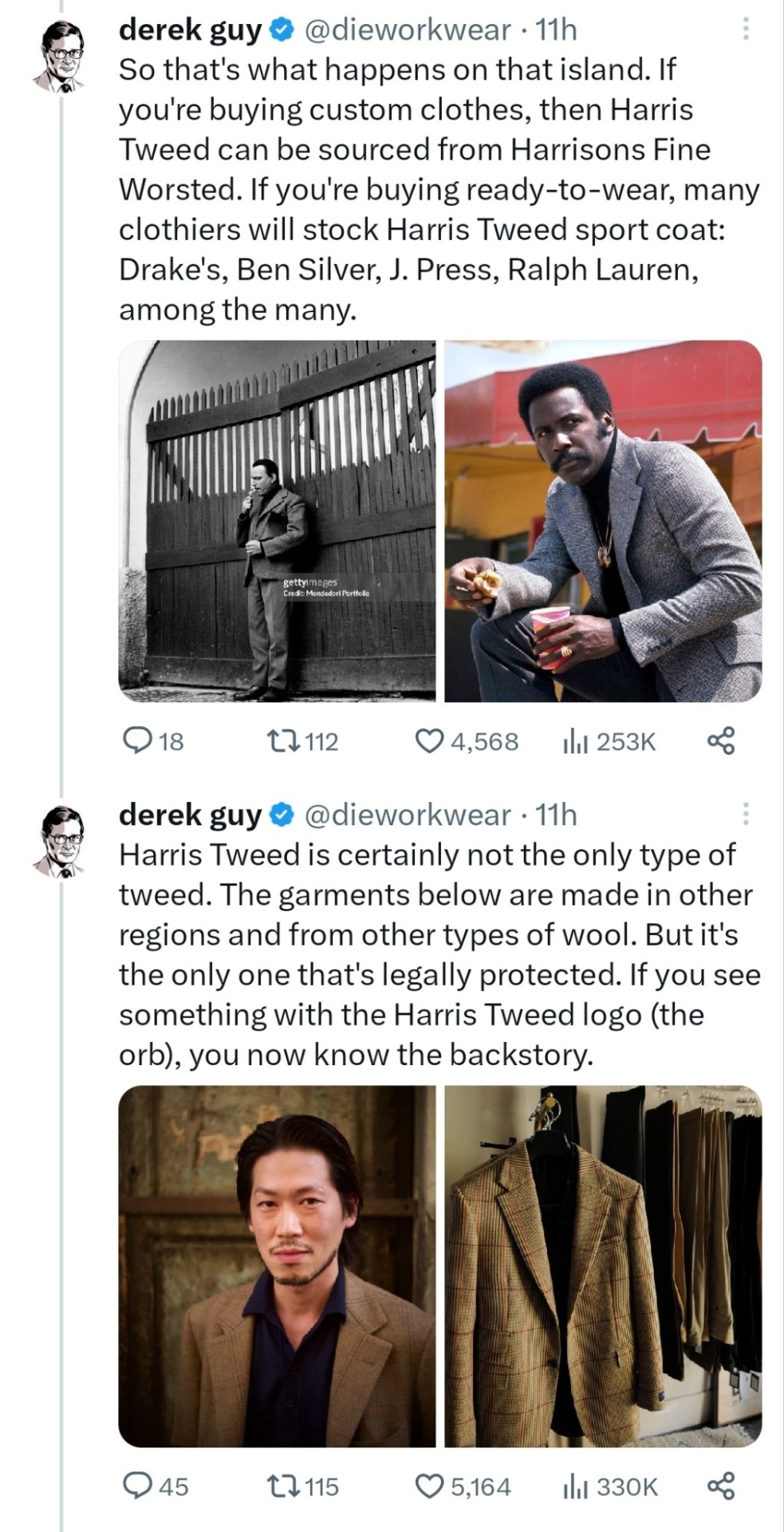
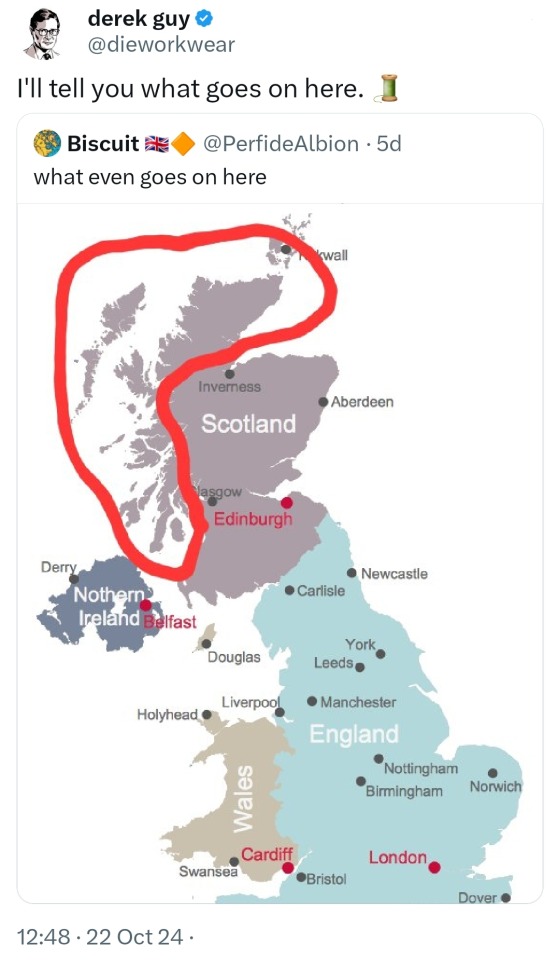
24K notes
·
View notes
Text
Another thing I didn't mention the other week that kills me about 'The Plan That Failed' is the way Griffin's name is used. This is following up on a pattern I noticed a little bit ago, but... in a really sad way.
So, Kemp never calls Griffin by name. When they first met, he repeated the name back in confusion, but never actually acknowledged aloud that the person he is talking to is the Griffin he vaguely remembers. Or at least, while he does so by implication, he doesn't do so by name:
“Griffin,” answered the Voice. A younger student than you were, almost an albino, six feet high, and broad, with a pink and white face and red eyes, who won the medal for chemistry.” “I am confused,” said Kemp. “My brain is rioting. What has this to do with Griffin?” “I am Griffin.” Kemp thought. “It’s horrible,” he said. “But what devilry must happen to make a man invisible?”
Kemp goes right to the concept of 'a man becoming invisible' rather than lingering in any way on 'so you are Griffin'. And in the moment, that sort of makes sense. Apparently he barely remembers Griffin from school (if at all), and so there's no particular shock of recognition for him. It's more shock at what's going on. But then after that, a distinct pattern begins to emerge, where Kemp only calls him by name when he's being vulnerable/civilized. When he is afraid of Griffin's violence, or thinking of him as something monstrous, he calls him by some kind of title, usually 'The Invisible Man'. And it's rare for Griffin to get his name used at all.
But even all of that was still just in the narration. Of course, the way this book is written as a sort of adaptation of various peoples' stories of what they remember may mean none of the dialogue has to be taken as exact. But still, even in that case it's notable that not once does Kemp call Griffin by any sort of name out loud. That whole pattern I've been discussing is only in his narration. At no point in any of their dialogue does he call him Invisible Man, but he also never calls him Griffin. The only way he addresses him directly, ever is "you." In contrast, Griffin says "Kemp" to him quite often.
So there's a distinct imbalance there too. Griffin is confiding his past, giving vent to his emotions, hoping for understanding and using Kemp's name often as an interjection which affirms a connection between the two of them. Meanwhile Kemp is walking a fine line verbally between outright either acknowledging Griffin's humanity (by using his name) or totally denying it (by directly addressing him with a title). This of course reflects his thoughts and also his actions, as he's listening to Griffin's story but in large part only to buy time so he can be caught.
But then... that changes.
Kemp’s hand went to his moustache. Was that a movement downstairs? “And it is killing we must do, Kemp.” “It is killing we must do,” repeated Kemp. “I’m listening to your plan, Griffin, but I’m not agreeing, mind. Why killing?” [...] “Humph!” said Kemp, no longer listening to Griffin but to the sound of his front door opening and closing. “It seems to me, Griffin,” he said, to cover his wandering attention, “that your confederate would be in a difficult position.” “No one would know he was a confederate,” said the Invisible Man, eagerly. And then suddenly, “Hush! What’s that downstairs?” “Nothing,” said Kemp, and suddenly began to speak loud and fast. “I don’t agree to this, Griffin,” he said. “Understand me, I don’t agree to this. Why dream of playing a game against the race? How can you hope to gain happiness? Don’t be a lone wolf. Publish your results; take the world—take the nation at least—into your confidence. Think what you might do with a million helpers—”
Suddenly we get Kemp calling Griffin by his name, out loud, several times in rapid-fire. At first, I noticed this particularly because the first time he does so is right after Griffin proclaims that they will need to kill people. Also, every single time he says it, it's paired with his own doubts/refusal to agree to this plan. But while that is all true, it's not the most significant detail here. More salient, I think, is the way that every use of Griffin's name is immediately preceded by mention of people arriving to capture him.
When Kemp finally calls Griffin by name, it's done in a clear attempt to distract him. The only time he grants him the courtesy of reaching out to him as a fellow human in this way is a lie. He's trying to use that connection in order to trick Griffin. He's essentially treating Griffin's name (which after the pattern in narration seems so clearly to me to be essentially shorthand for his humanity) as a tool to arrest him.
Honestly, this entire situation is pretty messed up all around. It's hard to say that either Marvel or Kemp ever really 'betray' Griffin, because they were never given even footing with him in the first place. They certainly didn't choose to help him, they both felt coerced. And yet, this moment... really does feel like a betrayal. It feels cruel, somehow adds insult to injury.
Kemp has been teetering between considering/treating Griffin as a fellow human, or the Invisible Man a monster. Certainly, the scales have been tipping steadily towards the latter, but it's not until this moment that everything comes crashing down. And it feels like such a bitter extra sting of irony that when it does happen, when the moment comes, he calls him by name.
But he's committed to the opposite course.
19 notes
·
View notes
Text

i had a realization about an old character of mine
8 notes
·
View notes
Text
Költözz 4 napra a Parkba, és írd meg a következő slágert!
0 notes

